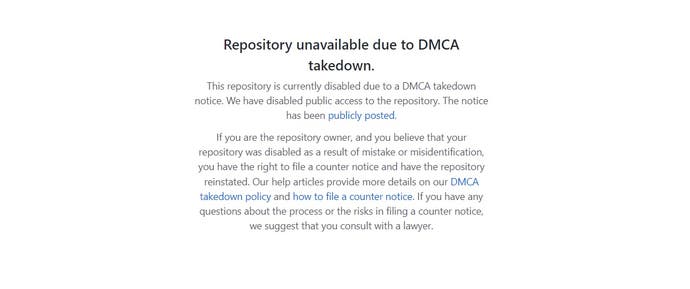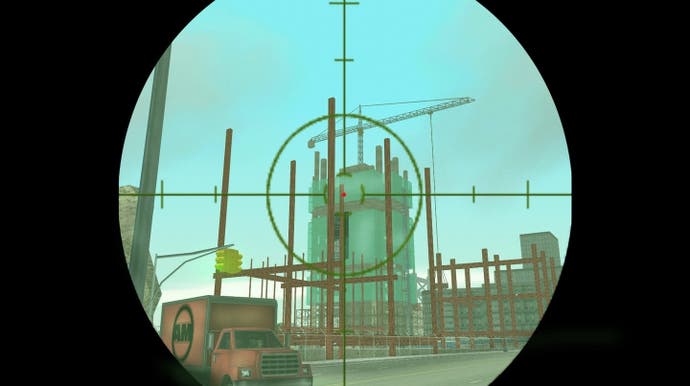GTA reverse engineering fan projects pulled offline for a second time after yet another Take-Two takedown
Here we go again.
High-profile Grand Theft Auto 3 and Vice City reverse-engineering fan projects were pulled offline for a second time after yet another Take-Two takedown.
The GTA 3 and Vice City reverse-engineering fan projects known as re3 and reVC were first hit by a DMCA takedown in February, with Rockstar parent company Take-Two claiming copyright infringement.
The fan-created source code for both games was made available on GitHub, offering a raft of eye-catching improvements over the original games officially available to play today on PC. (For more, check out our feature on how re3 came to be.)
At the time, project lead "aap" told Eurogamer he was worried filing a counterclaim might spark a lawsuit. However, the team behind the projects ended up disputing Take-Two's takedown and, without any sort of legal response from the publisher, GitHub restored the reverse-engineered code.
In its counterclaim, aap and co claimed fair use. "We believe that any code in this repo that is similar to code or other content owned by Take-Two is either unprotected by copyright or is permitted under fair use," read the counterclaim.
"We figured we have a good case for fair use on the grounds that we are improving and fixing the game as well as bringing it to new platforms," aap told Eurogamer at the time.
"This was the reason for quite a few people to purchase the game from Take-Two to play it on their favourite platforms. So in fact we're only making them money and we figured it would be unwise of them to actually go after us.
"So we went the normal route: one of our team members filed a counterclaim with GitHub and after a waiting period of about 14 days the repo got reinstated."
Before filing the counterclaim the project leaders talked to a legal expert who was working with GitHub, but the threat of legal action remained. Perhaps inevitably, Take-Two sued the project leaders in the state of California last month, claiming they "sought unlawfully to copy, adapt, and distribute to the public infringing source code for two classic GTA titles: Grand Theft Auto 3 and Grand Theft Auto: Vice City".
Take-Two's lawsuit alleges the developers were "well aware that they do not possess the right to copy, adapt, or distribute derivative GTA source code, or the audiovisual elements of the Games, and that doing so constitutes copyright infringement".
The lawsuit also mentions the GitHub counterclaim, alleging the project leaders "knowingly filed bad faith counter notifications that materially misrepresented the legality of their content, apparently claiming that because they allegedly 'reverse engineered' the Games' source code, they somehow cannot be liable for copyright infringement".
With the lawsuit ongoing, Take-Two issued a second takedown notice to GitHub demanding the removal of the projects, and GitHub has now complied, posting the takedown notice from Take-Two's legal firm Mitchell Silberberg & Knupp. "We very much appreciate GitHub's cooperation in this matter," the letter reads.

Aap declined to comment when contacted by Eurogamer.
Behind the scenes, it's clear Take-Two is ramping up takedowns against mods and unofficial ports of its older GTA titles. Many suspect this is because the publisher reportedly has plans to remaster GTA 3, Vice City, and San Andreas itself, and that it is seeking to quash competition ahead of release.
This week, Grand Theft Auto: The Trilogy - The Definitive Edition was listed on the Korean rating board.



